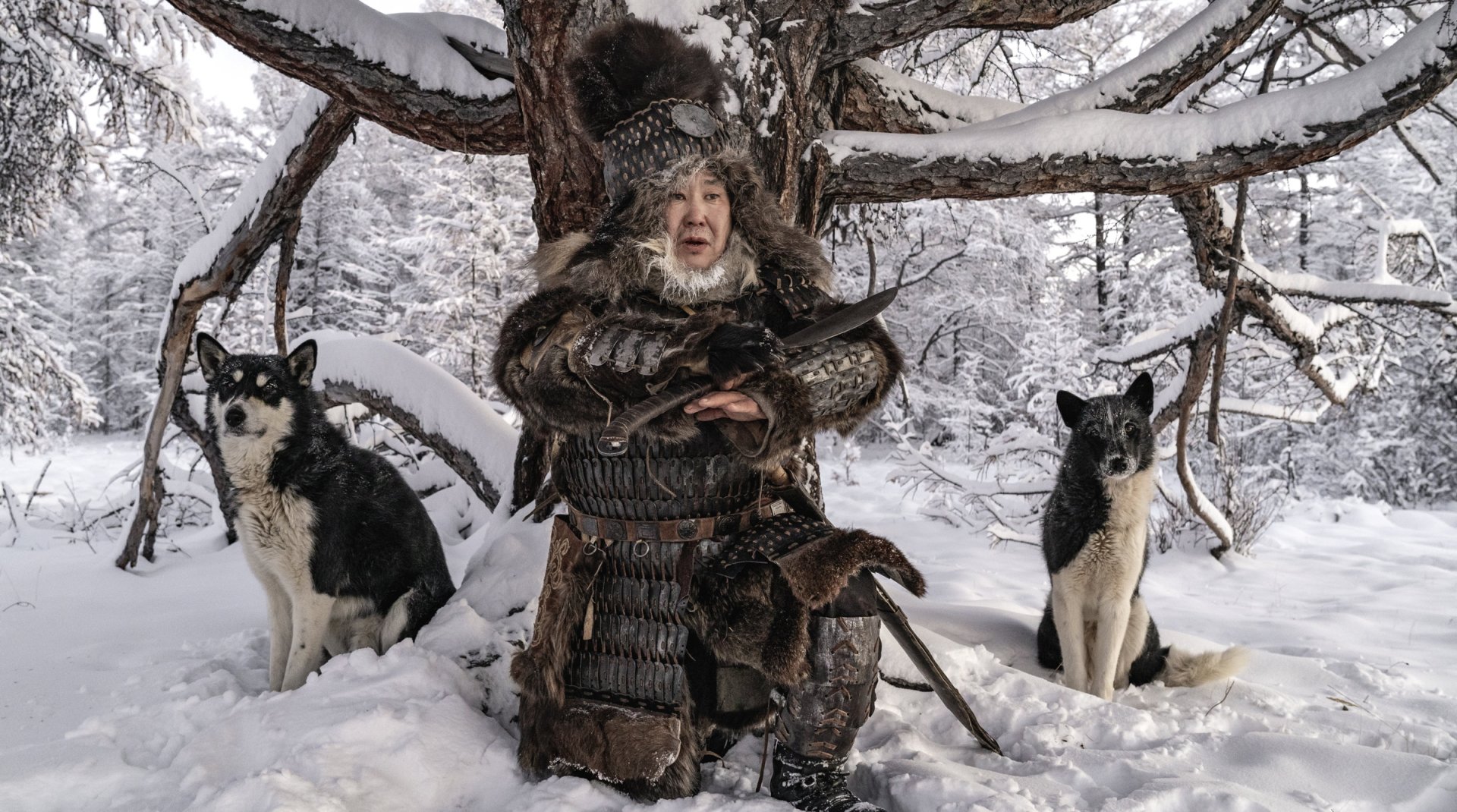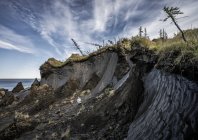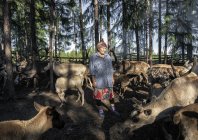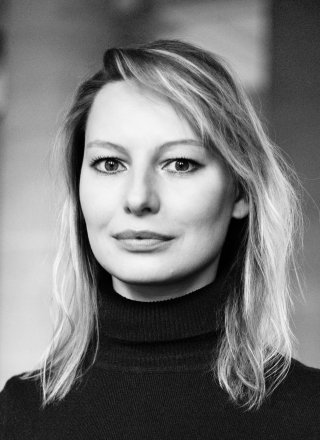
The Evenki People, custodians of the resources of Yakutia
Natalya Saprunova
Zeppelin
Winner of the 2022 Canon Female Photojournalist Grant
On July 29, 2022, on the shore of Lake Baikal, Evenki people from all parts of Russia gathered together for the first time. The Evenki are indigenous reindeer herders, and at this Tungusic assembly they had an opportunity to visit the cradle of their culture, the site where their people first lived. More recently, Evenki have been living on a large swath of land extending from the Yenisey River to the Kamchatka Peninsula, from Yakutia to China.
Nature and the natural environment are the entire life of the Evenki people. As traditional hunters, they have been crossing the eastern forests of Siberia for centuries, and some Evenki communities chose to settle in the boreal forest in Yakutia, on land with larch trees, blueberry bushes and reindeer moss. They have lived there in the habitat of the local fauna: deer, elk, grizzly bear, fox, wood grouse, and sable, and in the water there are taimen, pike, whitefish, perch and trout. It is not surprising then for natural sites to be known by Evenki names.
Evenki nomads are recognized as being noble, confident and brave, and were referred to as the “aristocrats of Siberia.” Outsiders who saw the men in their traditional costume which is similar to a tailcoat dubbed them the “Frenchmen of the forest.”
It was the same Evenki of Yakutia who guided Soviet prospectors in search of mineral wealth, acting as mushers for geologists, teaching them how to survive in the harsh environment. They, and many other native communities, thus contributed to the industrial development of the Soviet Union.
…
Preview


Today, the Russian Federation is the third largest gold producer in the world, and approximately one-third of all diamonds mined come from Yakutia. The Evenki have somehow managed to live alongside industry mining their land and sacrificing it for economic growth. In the boreal forest there has been extensive logging, river beds have been devastated, water tables polluted, and only rarely have there been ethnological expert assessments conducted before launching major works, even though they are compulsory under legislation passed in 1999 and which guarantees the rights of small indigenous peoples in the Russian Federation, requiring scientific impact studies to assess potential changes to the original habitat, to the social and cultural situation and the development of the ethnic group concerned.
The Evenki attach great importance to safeguarding the natural environment, for without reindeer and the habitat to feed their livestock, they would no longer exist. No one is better qualified than they are to give warnings to the world on the effects of climate change. They are native peoples and have strong bonds with their land; they are an integral part of the ecosystems, understanding and maintaining them, and the rest of the world must listen to them.
Even melting permafrost may find a local solution. While it is clearly a disaster for regions in the far north, it also concerns the rest of the world as methane and dangerous bacteria are released. At the Northeast Science Station in Chersky, Yakutia, the director, Nikita Zimov, who took over from his father, has his opinion, explaining that the large herbivores are essential to the environmental balance, as reindeer keep down the grass that could restrict the growth of trees needed to absorb the heat from the sun; and in winter, they help clear the snow and cool the soil temperature. But reindeer are not the only animals; there are also yaks, bison, horses, goats and more. Ultimately, this must be worth more than all the gold in the world, surely?
Natalya Saprunova


